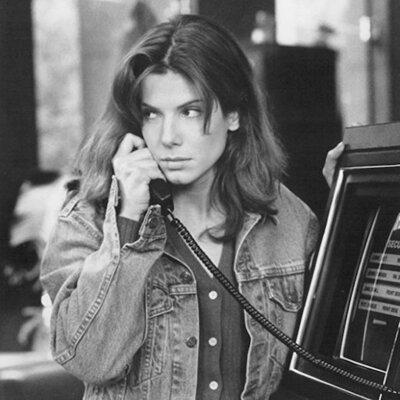15
Sindarina, Edge Case Detective (@sindarina@mastodon.lol)
mstdn.socialI am a bit worried about the number of people here who, like me, are fairly recent arrivals, and who are using the so-called 'extreme' and 'unreasonable' reactions to them wanting to 'hack' the fediverse to write off the whole conversation around consent as somehow not relevant.
The NSA monitors anything you do on the internet anyway, so why are you complaining about tech bros wanting to harvest out in the open, yada yada.
It seems we need to define what consent actually is.
AGAIN.



I agree with a lot of the spirit of what they’re saying, but I’m pretty sure I wouldn’t agree with their concrete applications of it (although they are unclear in the thread).
I think blurring the lines between public and private spaces is the opposite of informing consent. Cultivating unrealistic expectations of “privacy” and control in what are ultimately public spaces is actually bad, imo.
Informed consent in the fediverse should look something like a message on the signup page that says: This is a publishing system. Be aware that everything you publish here will be distributed to a bunch of other servers which are not under the control of us, the operators of your server. When you edit or delete something you’ve published, we will honor it and relay the message, but other servers may or may not honor it. There are many other tools for private (encrypted) group communication, but that is not what this is. ActivityPub is for publishing.
ps: I, for one, am glad that the Internet Archive exists!
Are cafés public, or private spaces? Can I just sit at the table next to yours and stream and record your conversation with your friends?
You technically can, and if you get caught the cafe can (and should, imo) kick you out for doing so. Pretending that a provider of an electronic publishing system can enforce the same kind of social norms as are possible in physical spaces is silly at best and actually harmful at worst.
Some of my favorite bars and cafes outright prohibit the use of phones and also don’t operate CCTV, but in many places you are in fact frequently nonconsenually recorded by other people, sometimes streamed onto something like facebook live, as well as constantly by 4K CCTV with audio (in violation of the law in many localities, yet still common).
When you’re having a conversation in a physical space and you notice someone eavesdropping, you sometimes might speak less freely as a result, especially if they appear to be filming. In a public conversation online, especially one readable without even logging in, you can’t tell when someone is “eavesdropping” because you are publishing.
I’m a big proponent of enforcing privacy in online and offline spaces with technology, policy, and social norms. I’m also opposed to magical thinking. Telling people that they can semi-publish, to have some of the benefits of publishing without some of the consequences, is misleading to the point of being dishonest.
I blame facebook for conditioning people to believe that such a thing is possible, through their years of blurring the lines between public and private.
Right, so we agree here. But you did not respond to the second question: are cafés public or private spaces?
Nobody is saying that. Nowhere in the thread I linked is that being said. Nowhere in my comments did I say that. It’s not about telling people they can or cannot “semi-publish”, it’s about telling people creating systems and products that they need to ask these people for permission to do certain things.
Or in other words: it’s not about telling café patrons they can or can’t have perfectly private conversations in the café, it’s about telling anyone who might want to potentially record conversations in that café “you have to ask and receive permission for this first”. That’s a pretty crucial difference.
They’re fundamentally private spaces, even if open to the public. Under certain zoning ordinances they may be considered a “public place” for some purposes if they are above a certain size, but this does not negate their ability to set their own rules and deny access to members of the public who violate them.
If a cafe wants to enforce a “no phones” rule, they can do so relatively effectively. If a website wants to enforce a “no robots” rule (especially if they also want to not require any login to view the content on the site) they can ultimately only pretend to be able to do that effectively.
But you’re again conflating the issue of consent and enforcement. There are things we are able to do but we know to ask first before we do them. The fact that something is possible doesn’t mean that it’s allowed. The fact that something is not easy to enforce against does not make it okay to do it anyway.
What about public parks? Is it okay to walk around you while you’re having a conversation and record you, and then post that conversation on-line? Is it okay to use directional microphones to record you in such a setting? Doesn’t the whole recording-in-the-park thing from the Conversation give you the creeps?
Are you saying that the fact that something is difficult to enforce against makes it okay to do, even if the person you do this to does not want it done?
No, that would certainly not be okay. When I’m walking in a public park I have some expectation of privacy. If you’re walking close to me when I’m having what is intended to be a private conversation, I might notice and pause.
You are conflating private and public conversations. When we’re having a conversation in a public forum like this online, we are both posting it on-line already.
I hope archive.org posts another copy on-line so that if I want to refer to this later, after lemmy and the whole cargo-cult-deadend activitypub architecture has gone the way of the dodo, I will still be able to. And I hope they make it searchable!
Of course not. It’s also not possible to be sure it isn’t happening, but, if/when that is happening it is an unambiguous violation of social norms (and the law, in most places).
Absolutely. (And now I’m wondering if you’ve noticed the reference to this film in my profile here or are bringing it up independently… 😀)
Not at all. I think publicly archiving public web content is okay because I think it has a net public benefit. Better than okay, I think it is a good thing to do.
It is not because it is difficult to enforce against that I think it is okay. The fact that it is difficult to enforce against is why I think that it is not okay to give people who don’t know any better the false impression that it is not difficult to enforce against.
To go further with this, I’m glad that I live in one of the most archive-happy time periods in history, at least when it comes to public data. Much of human history is simply lost to us. The wealthy might have distorted histories of themselves written and some records persist, but historical records are often incomplete or straight up propaganda. Only recently have we gotten to the point where just about anyone has the capability to keep a written record of their life (universal literacy).
But actually storing those for millennia is hard. Most medium degrade quite quickly, maybe even within decades. Certain texts were only preserved via regularly copying, hardly scalable. It takes something like the Internet Archive to preserve a lasting legacy that can extend past the most influential people into the experiences of commoners.
Yes. Business that can afford it have security cameras. And more relevantly, nobody talking in a cafe thinks their conversation is private and that nobody will overhear it. We use a combination of location within the space, voice level, and body language to show how we want others to interact with us. If you walk into the cafe and make an announcement at the front, you have no right to expect that nobody will respond to that announcement, or tell others about it, or even record you while you make that announcement. That is what posting on the fediverse is like. If you want a quiet conversation in the corner, you can post unlisted.
But unlisted toots are still technically public. If you scrape my profile, you will get them. And the point is: the fact that they are public in the technical sense does not mean I consented to them being scraped etc.
Just as wearing a short skirt is not blanket consent to sexual advances.
Then that’s a scope issue with your server software.
This is what I was trying to say with the analogy to a public announcement. Public speech has no expectation of privacy. Nobody would find anything wrong with recording a public announcement. If you want to have a private conversation, it’s up to you to hold that conversation privately.
This is a ridiculous analogy. Scraping public text, which is something that’s been widely accepted on the web for two decades, is not remotely similar to sexual assault.
Please let me know where you live and which cafe you frequent. I’ll just stand there while you have a quiet conversation with your SO, my phone recording everything you say. You won’t object, naturally, because it’s a public space and if you didn’t want your romantic conversation broadcast live on Twitch you’d have had it elsewhere, right?
Saying that “she asked for it; she was dressed like a slut” was widely accepted in the world at large for THOUSANDS of years (and still is in some places!). Until it suddenly wasn’t. In some parts of the world.
Hell, pounding the shit out of someone for being “rude” was (and is) widely accepted for thousands of years. Not all that long ago, in human historical terms, killing someone for talking back to you was not only acceptable, it was required to preserve your “honour” (or whatever other term was used in that space).
Maybe—and just hear me out here—maybe things that are “widely accepted” have turned out to be shitty things, not things to be emulated and amplified.
(Please wait until I’m in your cafe and recording before you respond, though. I want to make sure that thousands of people are listening in.)
@rysiek @cypherpunks kind of a side note: your café of today is probably full of people instagramming every bun they eat and keep various discourses online while being physically present in that cosy interior, a hybrid of online/offline and the online part mostly public, I’d say.